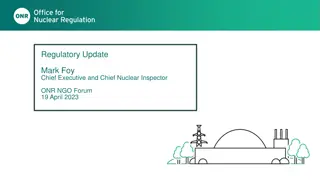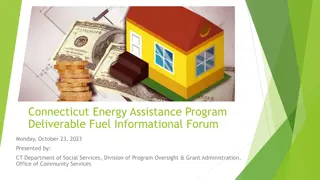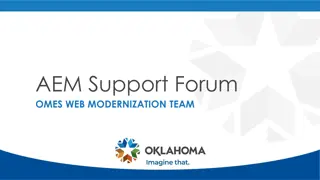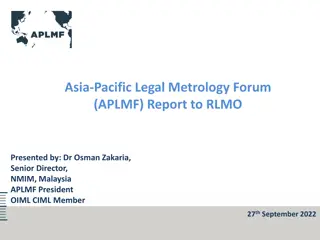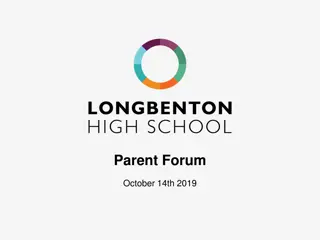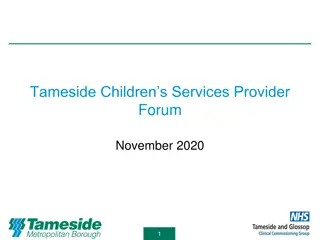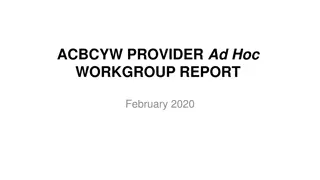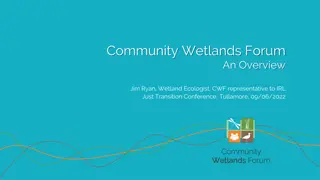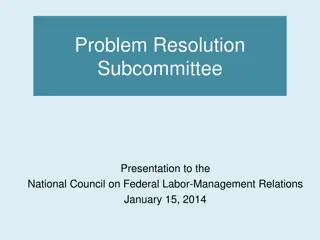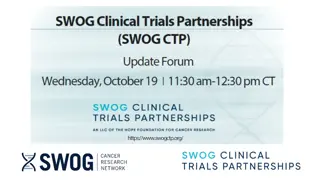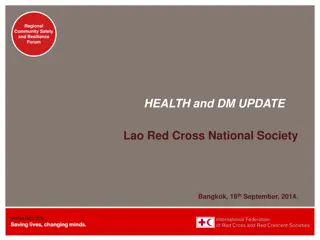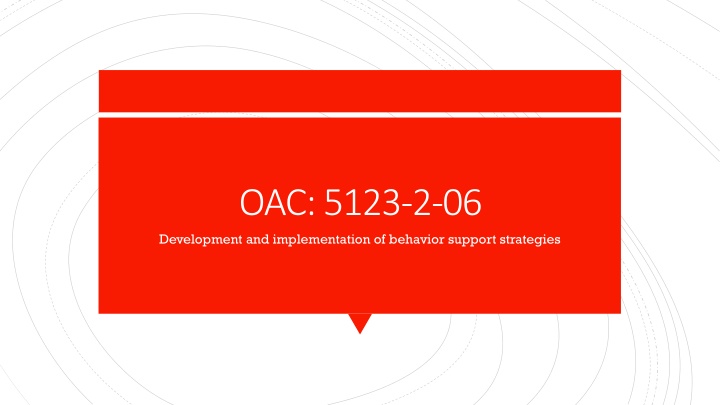
Positive Support Strategies and Specialized Services in Behavior Implementation Rule Updates
"Discover the latest updates to behavior support strategies with a focus on positive interventions and specialized services for individuals with unique needs. Learn about dietary restrictions, risk analysis, and enhancing quality of life in this insightful rule revision. Stay informed and explore new possibilities for better support outcomes."
Download Presentation

Please find below an Image/Link to download the presentation.
The content on the website is provided AS IS for your information and personal use only. It may not be sold, licensed, or shared on other websites without obtaining consent from the author. If you encounter any issues during the download, it is possible that the publisher has removed the file from their server.
You are allowed to download the files provided on this website for personal or commercial use, subject to the condition that they are used lawfully. All files are the property of their respective owners.
The content on the website is provided AS IS for your information and personal use only. It may not be sold, licensed, or shared on other websites without obtaining consent from the author.
E N D
Presentation Transcript
OAC: 5123-2-06 Development and implementation of behavior support strategies
Over the last year and a half, a workgroup consisting of representatives from statewide stakeholders met to review each and every part of OAC 5123-2-06 Revisions were made to various and critical parts of the rule Revising the Former Rule Big changes to the rule will be highlighted here however, don t hesitate to ask questions as the revisions are rolled out. You will see new things!
Beginning October 1, 2022, the rule now requires a heavy dose of positive support strategies. Luckily, Hamilton County has always provided positive supports, at first and throughout the course of a behavior support consult. 1. Positive, Positive, POSITIVE Strategies! Expect to see the addition of more targeted trauma informed care strategies throughout assessments, positive additions to ISP s, and especially when restrictive measures are warranted.
The rule now includes space and allowance for dietary restrictions (denial of snacks/food) for people with verified medical diagnosis to include but not limited to primary polydipsia and compulsive eating disorders such as Prader-Willi Syndrome. Denial of snacks or beverages is permissible for an individual with primary polydipsia or a compulsive eating disorder attributed to a diagnosed condition such as "Prader-Willi Syndrome" when denial is based on specific medical treatment of the diagnosed condition and approved by the HRC. Definitions (Prohibited Measures) The rule continues to prohibit the use of arbitrary food/drink schedules without just cause and evidence from medical personnel.
The rule now requires a rich and indepth analysis (and presentation) of the potential risks to the focus individual when restrictive measures are used. Consideration of RISK to the Individual How will the team mitigate or decrease these risks?
In concert with consideration of risk to the focus individual, the rule now requires teams to explore specialized services to increase a person s quality of life. Specialized Supports This is the fun part! Getting to know the person, understand what helps them and brings them joy, fuels this conversation. Get creative!
The revised rule now includes a new definition for chemical restraints. The MOST important thing to remember is- your job doesn t change! Restrictions: Definitions You are still required to report, document, and report again! Communication is KEY. You are the focus person s ADVOCATE!
The revised rule now includes the phrases blunt suppression and precisely defined patterns of behavior . The field is STILL required to analyze the effects of medication and look specifically for noticeable and discernable differences in behavior. Chemical Restraints Noticeable and discernible differences in behavior are signs that the medication may be having too strong of an effect OR an effect that was not intended.
REPORT ALL DIFFERENCES to the focus persons SSA immediately! The SSA will then notify the appropriate people and facilitate a discussion with the focus person s prescriber. Chemical Restraints The prescriber may choose to leave the medications AS IS. In this case, this is considered BLUNT SUPPRESSION and is a chemical restraint. BUT THERE IS ANOTHER OPTION
If the prescriber DOES want to change the medication (dose, administration, etc.) the team has 30 days to continue assessing the effects. Communicate with each other and with the prescriber during these 30 days! Chemical Restraints Supply data (with the help of the team) If a blunt suppression still exists and the prescriber does NOT change the medication then it is still a chemical restraint. If the blunt suppression dissipates, then this is not considered a blunt suppression.
Important notes on chemical restraints: Medication routinely prescribed for patients without disabilities in conjunction with medical appointments are NOT considered chemical restraints Medications used to treat sexually offending behavior (Depo) are considered chemical restraints Chemical Restraints
The rule revision now requires that the team include important aspects of planning with the guardian in all activities surrounding restrictive strategy implementation. Guardian Involvement
Beginning October 1, 2022 whenever a restrictive measure is included in a focus person s ISP, the team must determine when and how the guardian wishes to be notified of the use of restrictive measures. Guardian Involvement (Planning) THIS INCLUDES YOU! You are required by rule to continue taking data on all restrictive and positive measures used to support the person you serve. You will furnish this data to the guardian and team, as determined by the team and in the manner which is most helpful to all (email, team meeting, phone call).
When a person has a restriction in the plan, the team meets anywhere from 30-90 days routinely. Guardian Involvement (Monitoring) WHAT TO BRING: Data (on data sheets supplied by the BSS from HCDDS) Anecdotal information that HELPS describe the person s behavior and daily functioning.
Tips for reporting on a focus persons progress and daily functioning: Guardian Involvement (Monitoring) Prepare! Prepare documentation in REAL TIME. Plan ahead- speak to the appropriate parties in advance so that you have the best and most current information for team meetings Ask QUESTIONS- please make sure you understand what you are recording data on and why!
For all people who have manual restraints in their ISPs, you will now be required to engage in a debriefing session with the team after the use of the manual restraint. Guardian Involvement (Manual Restraint) Form and facilitation will be supplied by HCDDS. Please plan ahead and include at least ONE direct service professional (DSP) who was involved in the incident. This is required BY RULE. We will help you work out the kinks and challenges- we are a team!
Guardians will now be invited to HRC meetings which feature presentation for FORMAL APPROVAL of a restrictive measure for their ward. Guardian Involvement (HRC) Invitations will be furnished by the HCDDS. You can help by providing relevant information to the team throughout the process of restrictive measure approval. You are KEY in this part of the journey to helping a person achieve health and happiness in a safe way.
If a strategy is rejected at the point of formal approval from HRC, guardians will receive written instructions on asking for a reconsideration from the committee. Guardian Involvement (Reconsideration) Reconsiderations will be heard by the HRC and the process of issuing appeal rights will be provided dependent on the outcome of the discussion.
Other important revisions to OAC 5123-2-06 include: Changes to what is discussed during 90 day reviews to include a more concentrated look at what is working and what is not. Changes to how BSS staff report restrictive measure use to the state (DODD) including a requirement to report discontinued strategies Changes to the route and delivery of aggregate restrictive measure use by each county board to the state (DODD). Other Important Revisions
While it may seem there are numerous changes to the rule, the reality is that you are already doing all the things asked of you. Continue to report data Conclusion Continue to be on the lookout for changes in the focus person s behavior and functioning Continue to speak up
If you dont hear it enough, consider this a standing Thank you, thank you, THANK YOU for all you do. Gratitude You are valuable, you are important, and we ALL need you.



